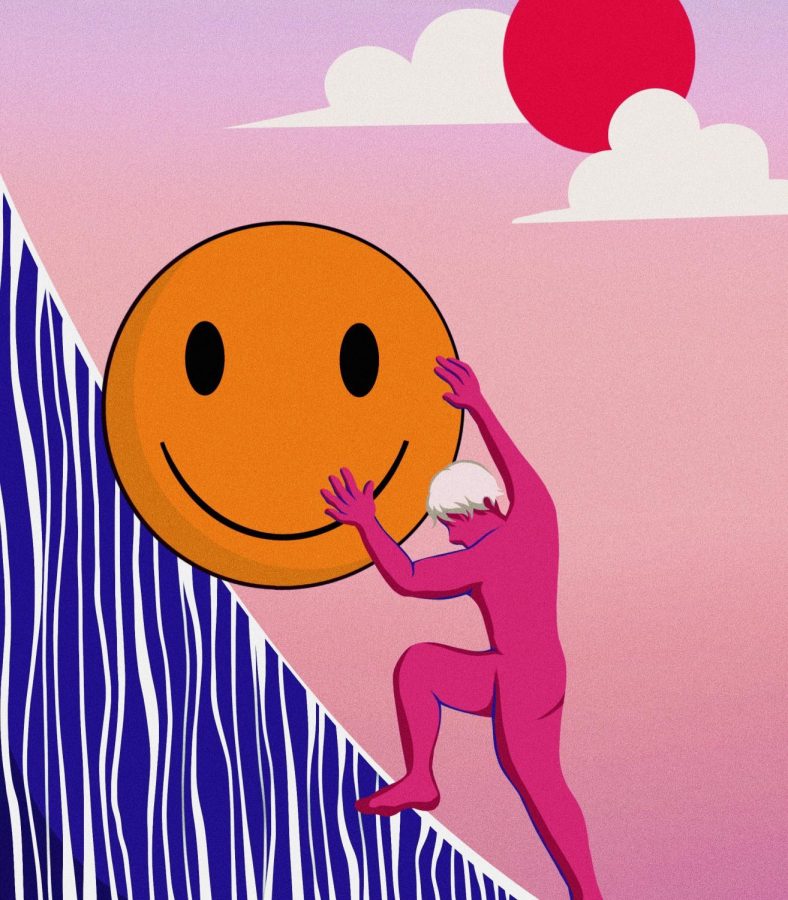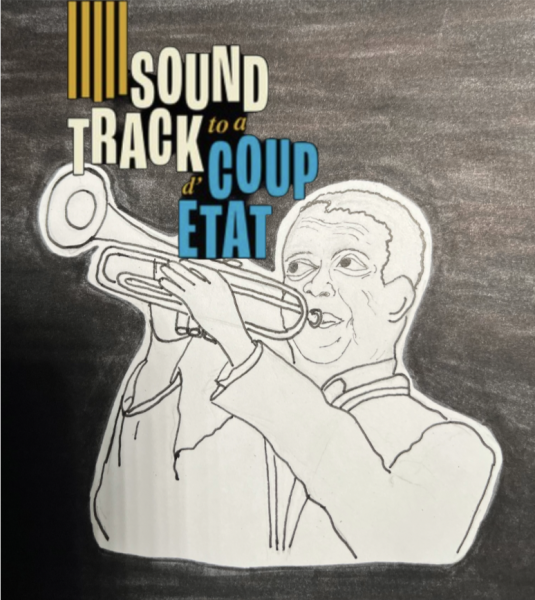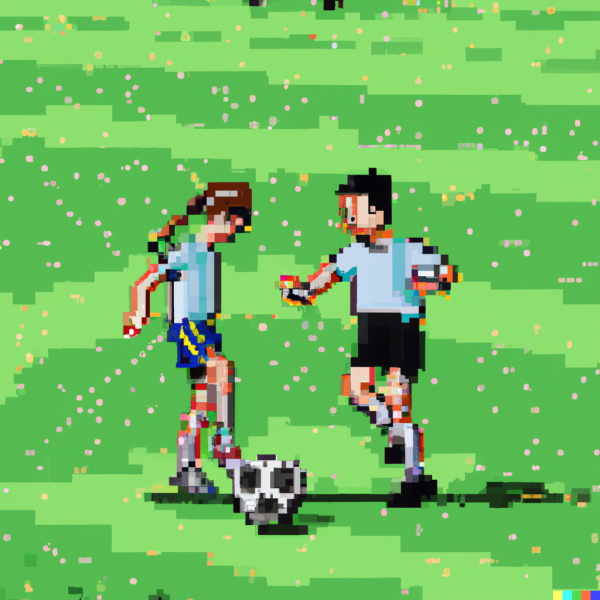An Absurd Existence: Life During a Pandemic
Photo by Julie Wang
Images created by Julie Wang
The Absurd is the eternal conflict that humanity faces. It is the eternal conflict between the human attempting to find purpose in life and being unable to; of desiring that which does not exist; in between the will for a purpose and its (seeming) nonexistence.
Faced with a purposeless, moral-less, meaningless world—reality—our existence is nothing other than an empty hole; a desert of the real; devoid of reason. It is not rational, not irrational; not bad or good—it simply is. And the human condition is inseparable from it.
This condition is exemplified by the Greek myth of Sisyphus. In life, Sisyphus was a sly and cunning man, the king of Corinth, the pride of Greece. He cheated death twice, was deemed a sinner by Olympus, and punished in the most torturous fashion: to suffer the absurdity of existence. For eternity, Sisyphus is condemned to push a heavy boulder to the top of a hill. Right before reaching its peak, the boulder rolls back down and renders Sisyphus’s strenuous and agonizing efforts meaningless.
Forever.
A perpetual loop of purposelessness. The absurdity is in that his actions have no meaning; it is his desire to have meaning, contrasted with the reality that no matter the magnitude of his efforts, his existence will always lack meaning. His meaning is that of a non-meaning; his purpose, anti-purpose.
I feel like Sisyphus.
Since March 2020, school has not been the same. While currently, we are back in a hybrid schedule, the fact remains that attending school online is boring. It seems increasingly pointless. Increasingly Sisyphean. For many, quarantine gradually detaches the results of our work from us. It alienates us from the satisfaction of our efforts in the same way Sisyphus is deprived of meaning. Alienation to the point that there seems to be no purpose. A monotonous, banal existence.
My online days are organized as such:
- Wake up (barely before the first period)
- Eat
- Rush to Zoom
- Stay on the computer for 2 hours
- Make coffee during break
- Another 2 hours staring at the screen
- Drink the remaining lukewarm coffee, attempting to remain conscious through the virtual talking heads.
- Lunch: 1 hour of pointlessness. As if I’m condemned to be free, forced to. Not enough time to do anything and just enough to feel as if I need to do something.
- Last period—the last stand
By the time I get to last period, my head is aching and overloading with emptiness. On certain days, I have to stay upwards of 8 hours on the computer—definitely not healthy. These eight steps are the confines of my quarantined being. Of my current existence. I have nothing to do, but have so much time at hand, and simultaneously I know I must study. But also, exams are far away—so nothing really matters. Like Sisyphus, I feel like my efforts are in vain—in all senses. They are not, and I know that—we all should. But that doesn’t mean I can’t feel like it is.
I do this for what seems like an eternity.
What is more unbearable than a Sisyphean existence, a meaningless recurrence?
When faced with the absurdity of existence, we have the tendency to fall into bad faith—things which hide the brute reality from us, which mask the banality of being and simulate purpose. A fantasy of great aspiration; of immeasurable ascent. This should be avoided at all costs.
Dreams are inspirational and based on reality. They can be real.
Fantasy is something unreal—it will never be accomplished.
Let’s consider Sisyphus once again. He really has no purpose. Like really absolutely no reason at all for existence other than his punishment. The French-Algerian philosopher Albert Camus has but one simple answer to help Sisyphus deal with his being:
“Il faut imaginer Sisyphe heureux.”
“One must imagine Sisyphus happy.”
Simple as that. We must imagine ourselves happy, and become so in its process. I’m joking, of course, I understand its difficulty. But as simple as it might sound, that’s Camus’s actual answer to absurdity. Realistically, to make ourselves happy in the futility of life, we must find pleasure in small things. I will not go into how to make your learning experience better and tell you to do this and that, but I will say that creating meaning can be one of the most important things during our brief existence. Find meaning in everything. Your coffee should not only be coffee. Appreciate the sound the condensed coffee made when it hit the walls of your coffee maker. Appreciate its rich smell. And if it isn’t rich, make it so. Find pleasure in the initial sip, in the simplicity of its being, but in the broadness of its effects. Consume it not as itself, but as something beyond, something which you yourself create.
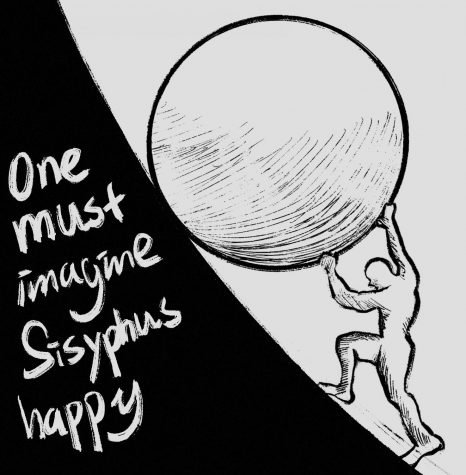 Nietzche has a similar answer when faced with an absurd reality. We must become the Übermensch—the ones who create our own purpose, our own meanings, create emotion in that which has none and harvest the fruits of your own creations. After all, we are not condemned to push a boulder up a hill.
Nietzche has a similar answer when faced with an absurd reality. We must become the Übermensch—the ones who create our own purpose, our own meanings, create emotion in that which has none and harvest the fruits of your own creations. After all, we are not condemned to push a boulder up a hill.
Regarding the repetitiveness of life, Nietzche asks:
What if a demon crept after you one day or night in your loneliest solitude and said to you: ‘This life, as you live it now and have lived it, you will have to live again and again, times without number; and there will be nothing new in it, but every pain and every joy and every thought and sigh and all the unspeakably small and great in your life must return to you, and everything in the same series and sequence… the eternal hour-glass of existence will be turned again and again—and you with it, you dust of dust!’— would you not throw yourself down and gnash your teeth and curse the demon who thus spoke? Or have you experienced a tremendous moment in which you would have answered him: ‘You are a god and never did I hear anything more divine!’
[The Gay Science, 341]
Which one would you be?
“My formula for greatness in a human being is amor fati: that one wants nothing other than it is, not in the future not in the past, not in all eternity. Not merely to endure that which happens of necessity, still less to dissemble it—all idealism is untruthfulness in the face of necessity—but to love it.”
[Ecce Homo, Why I Am So Clever 10]
The absurd is an inescapable aspect of the human condition. The best we can do is adapt to it. Embrace it, and love it.
“Have I been understood?”
[Ecce Homo, Why I am a Destiny]
A very brief introduction to the concepts explored:
Albert Camus (pronounced cah-moo):
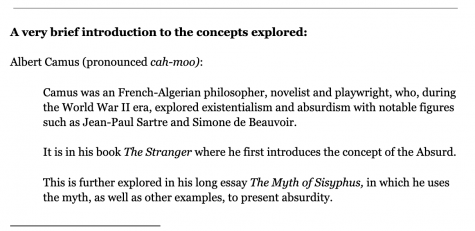 Camus was a French-Algerian philosopher, novelist and playwright, who, during the World War II era, explored existentialism and absurdism with notable figures such as Jean-Paul Sartre and Simone de Beauvoir.
Camus was a French-Algerian philosopher, novelist and playwright, who, during the World War II era, explored existentialism and absurdism with notable figures such as Jean-Paul Sartre and Simone de Beauvoir.
It is in his book The Stranger where he first introduces the concept of the Absurd.
This is further explored in his long essay The Myth of Sisyphus, in which he uses the myth, as well as other examples, to present absurdity.
Friedrich Nietzsche (pronounced neech-uh):
Nietzsche is arguably one of the most influential philosophers of the 19th century—many, including the existentialists. In his famous affirmation that “God is dead”(Found in The Gay Science and Thus Spoke Zarathustra) , Nietzsche establishes his status as a proto-existentialist. God does not represent a single, real, monotheistic god, but rather the religion, morality and purpose that is attached to it. With the death of god, Nietzsche shows how humanity has no objective, transcendental purpose.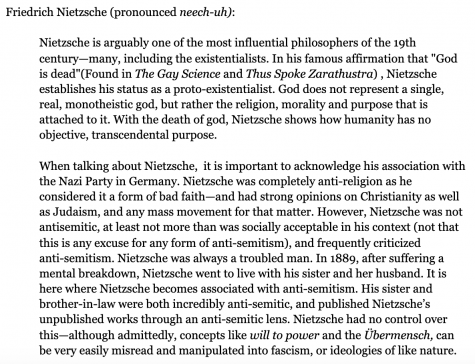
When talking about Nietzsche, it is important to acknowledge his association with the Nazi Party in Germany. Nietzsche was completely anti-religion as he considered it a form of bad faith—and had strong opinions on Christianity as well as Judaism, and any mass movement for that matter. However, Nietzsche was not antisemitic, at least not more than was socially acceptable in his context (not that this is any excuse for any form of anti-semitism), and frequently criticized anti-semitism. Nietzsche was always a troubled man. In 1889, after suffering a mental breakdown, Nietzsche went to live with his sister and her husband. It is here where Nietzsche becomes associated with anti-semitism. His sister and brother-in-law were both incredibly anti-semitic, and published Nietzsche’s unpublished works through an anti-semitic lens. Nietzsche had no control over this—although admittedly, concepts like will to power and the Übermensch, can be very easily misread and manipulated into fascism, or ideologies of like nature.



